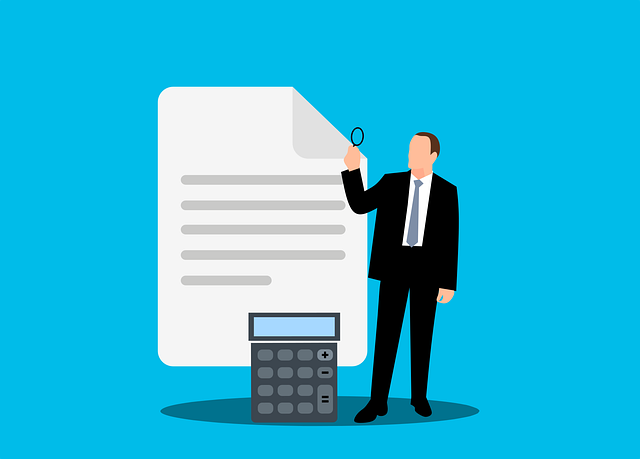Self-employed professionals in South Africa require strategic tax planning to navigate the country's complex system of personal income tax, VAT, and levies. Key aspects include meticulous record keeping, understanding deductible expenses, maximizing allowances, choosing between PAYE and annual tax filing, and consulting specialists for optimal long-term financial security. Avoiding pitfalls like inadequate record-keeping and underestimating taxes involves consistent tax management and expert guidance.
Navigating South Africa’s complex tax landscape as a self-employed professional can be daunting. This guide offers essential tips for mastering your tax obligations. From understanding self-employment tax dynamics and record keeping best practices, to leveraging allowances and deductions, we demystify efficient planning. Learn about the Pay As You Earn (PAYE) system versus annual filing, and discover strategies to optimize tax liability. Additionally, we highlight common pitfalls and provide solutions to avoid them, ensuring you make informed decisions for successful self-employment tax planning in South Africa.
- Understanding Self-Employment Tax Obligations in South Africa
- Record Keeping and Documentation for Efficient Tax Planning
- Utilizing Allowances and Deductions for Self-Employed Individuals
- Navigating Pay As You Earn (PAYE) vs. Annual Tax Filing
- Strategies for Optimizing Your Tax Liability
- Common Pitfalls and How to Avoid Them in Self-Employment Tax Affairs
Understanding Self-Employment Tax Obligations in South Africa

In South Africa, self-employed professionals have unique tax obligations that require careful management and planning. Understanding these responsibilities is crucial for avoiding penalties and maximising deductions. The country’s tax system imposes a variety of taxes on self-employment income, including personal income tax, value-added tax (VAT), and various other levies. Effective self-employment tax planning involves staying informed about these diverse taxes and their applicable rates.
Professionals in this sector can benefit from keeping detailed records of all business-related expenses to claim deductions accurately. This includes tracking business use of personal assets, travel costs, and any training or education expenses related to the work. Additionally, staying updated on tax legislation changes is vital, as amendments can impact planning strategies. By proactively managing their tax obligations, self-employed South Africans can ensure compliance while optimising their financial situation.
Record Keeping and Documentation for Efficient Tax Planning

For self-employed professionals in South Africa, efficient tax planning hinges on meticulous record keeping and documentation. This involves maintaining detailed records of all business income, expenses, and transactions throughout the year. Receipts, invoices, and bank statements should be organised and easily accessible for auditing purposes. By keeping accurate financial records, you can accurately calculate your taxable income, claim legitimate deductions, and ensure compliance with South African tax laws, ultimately minimising your tax liability.
Utilizing Allowances and Deductions for Self-Employed Individuals

In South Africa, self-employed professionals can significantly reduce their tax liability by strategically utilizing allowances and deductions allowed under the country’s tax laws. One key aspect is understanding what expenses are tax-deductible. This includes business-related costs such as office supplies, travel expenses, and equipment maintenance. By keeping detailed records of these expenditures, individuals can claim deductions, lowering their taxable income.
Effective self-employment tax planning involves maximizing these allowances. For instance, the home office allowance allows self-employed individuals to claim a portion of their rental or mortgage costs, as well as utility bills, for work performed at home. Additionally, contributions to retirement funds, such as a pension or provident fund, can be tax-deductible, providing both financial security and a tax benefit.
Navigating Pay As You Earn (PAYE) vs. Annual Tax Filing

In South Africa, self-employed professionals have two primary tax options: Pay As You Earn (PAYE) and annual tax filing. PAYE is a convenient system where taxes are deducted from your income at source by your employer or yourself if you’re an independent contractor. This method simplifies tax management as no separate annual return needs to be submitted, making it ideal for those with consistent earnings throughout the year. However, it may not be suitable for everyone; complex business structures or significant fluctuations in income might require the more traditional annual tax filing approach.
For self-employment tax planning in South Africa, understanding these options is crucial. Annual tax filing offers more control and allows for deductions of certain expenses but demands proactive tax management. In contrast, PAYE provides convenience but may not account for all applicable deductions and credits. Therefore, self-employed individuals should carefully assess their financial situation and consult with tax professionals to make informed decisions regarding their tax strategy in South Africa.
Strategies for Optimizing Your Tax Liability

As a self-employed professional in South Africa, effective tax planning is key to optimizing your financial situation. One strategic approach involves keeping detailed records and receipts for all business-related expenses. By doing so, you can accurately claim deductions, reducing your taxable income significantly. This meticulous record-keeping ensures compliance with the Revenue Service’s (SARS) requirements, averting potential penalties and fines.
Additionally, consider contributing to tax-efficient retirement funds or other approved investment schemes. These contribute to long-term financial security while offering immediate tax benefits. Consulting with an experienced accountant who specializes in self-employment tax planning can further refine your strategy, ensuring you make the most of available deductions and credits within South Africa’s tax laws.
Common Pitfalls and How to Avoid Them in Self-Employment Tax Affairs

Many self-employed professionals in South Africa fall into common pitfalls when it comes to tax planning, which can lead to unnecessary penalties and back taxes. One of the biggest mistakes is not keeping detailed records of all income and expenses. Self-employment tax planning requires meticulous record-keeping, including receipts for business-related purchases, invoices for services rendered, and logs for time spent on client work. Failure to maintain these records properly can result in disputes with the South African Revenue Service (SARS).
Another pitfall is underestimating the taxes owed due to inconsistent cash flow. Self-employed individuals often experience fluctuations in income, which may lead them to put off paying taxes until their cash flow improves. However, this strategy can be risky as penalties and interest accumulate on unpaid taxes. To avoid this, self-employed professionals should set aside a portion of their income for taxes throughout the year and consider making estimated tax payments to stay compliant with SARS regulations. Regularly reviewing tax laws and consulting with an accountant who specialises in self-employment tax planning in South Africa can also help individuals steer clear of these common traps.

